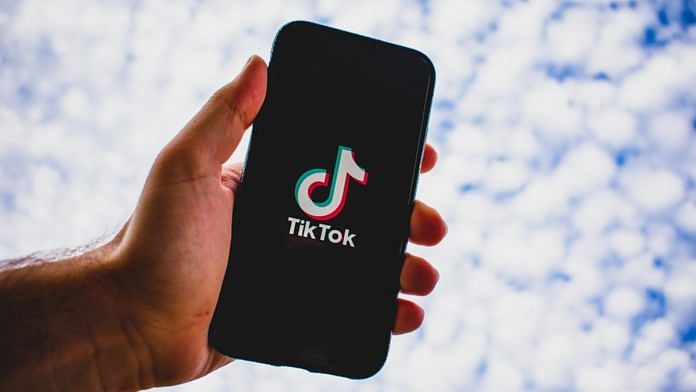As vaccines are rolled out across the world, dispelling misconceptions about COVID-19 has never been more important – prompting scientists and healthcare workers to turn to social media platforms like TikTok to do their bit.
During the first quarter of 2020 alone – when much of the world went into lockdown – the video-sharing app was downloaded 315 million times.
While many use the app for entertainment, others are using the platform to address far more serious matters.
TikTok user and PhD scientist Dr.Noc – real name Morgan McSweeney – uses the app to address misconceptions about COVID-19 and the vaccines developed to fight the disease.
In a post dated January 12, he seeks to put into context the number of COVID-19 deaths in the US over the past week to more than 372,000 followers.
“I know there’s a lot of people in denial right… so I’m going to give you some context about the current COVID surge,” he says in the TikTok video. “Last year – the whole year, the whole flu season 2020 – there were about 20,000-60,000 influenza deaths.
“In the last week – the last one week – of this COVID surge, there’s been over 20,000 deaths. This is pretty bad.”
Medical staff address Covid-19 myths
Christina Kim is an oncology nurse practitioner with more than 231,000 followers who took to TikTok herself after noticing videos with false information about COVID. She told Wired: “I was so shocked to be exposed to this world of people – people who didn’t believe in science.”
Her recent videos address questions such as ‘can a group of vaccinated people get together without masks?’, ‘could people with prior COVID infection have worse vaccine side effects?’ and ‘what happens between the 1st and 2nd vaccine doses?’.
Meanwhile, Dr Rose Marie Leslie, a chief family medicine resident at the University of Minnesota Medical School, uses TikTok to tackle a range of medical issues, including sexual health matters, for young people – who often do not know where to seek such information.
But she also addresses issues related to COVID-19 and hervideo about what side effects she’s had from the vaccine, which includes footage of her getting the shot, has clocked up more than 970,000 views.
Videos such as these can prove vital in combating COVID-19 myths on a social media network known for its popularity among younger people.
TikTok’s popularity could be particularly important when it comes to encouraging vaccination in young people, who tend to be more sceptical about vaccines than older age groups.
For example, in the US just over half (55%) of those under 30 said they would definitely or probably get a COVID-19 vaccine, compared to 75% of those over 65, according to a Pew Research Center survey.
As successful vaccination programmes require a certain amount of the population being protected, getting all age groups on board will be key in ending the pandemic.
WHO warns of ‘infodemic’ undermining global response
COVID-19 is the first pandemic where technology and social media have been readily available to keep people informed. However, the World Health Organization (WHO) has warned of the dangers of social media enabling and amplifying what it calls an ‘infodemic’, the spreading of misinformation that can undermine the global response.
At its worst, misinformation can cost lives. But it can also cause societal divisions by polarizing public debate, amplifying hate speech and heightening the risk of conflict, violence and human rights violations, the WHO warns.
The organization has published guidance on how to report false and potentially harmful COVID-19 information on a range of online platforms, while a ‘Mythbusters’ section of the WHO website addresses claims such as whether eating garlic can protect from coronavirus (it doesn’t).
Social media used to combat misleading information
Social networks such as Facebook and Twitter also post warnings on shared content that may be misleading, advising users to refer to sources such as the WHO. Meanwhile, YouTube has vowed to remove any misinformation about vaccines.
With the support of content creators such as Dr.Noc, such online platforms could also prove a vital secondary tool in helping end the pandemic.
This article was first published in World Economic Forum.
Also read: Covid mutations undercut optimism even as more vaccines get ready



